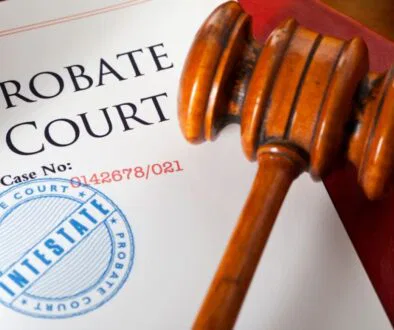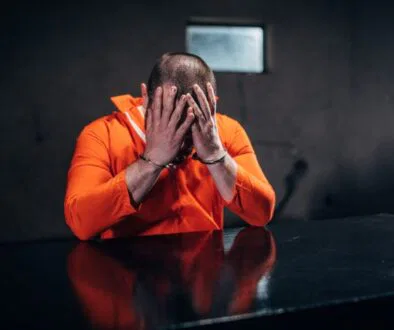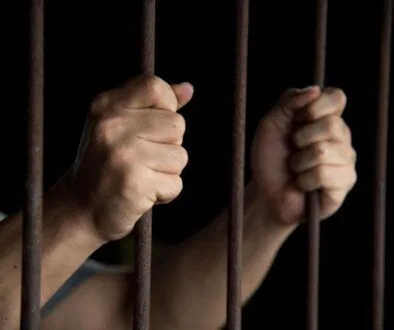5 Best Books About Prison and the Life Inside

Published July 12, 2021
Books about prison are frequently among the most popular reading choices for people incarcerated. Howard Marks, who died of illness, authored a genre classic with his book Mr Nice. It details Marks’ international drug smuggling activities and his seven years inside prison in the United States when it was first published in 1996. Mr Nice has now become one of the most frequently borrowed books from prison libraries. The following five below are among the most borrowed prison books:
1. Jack Henry Abbott’s In the Belly of the Beast: Letters from Prison
“We are all so guilty at the way we have allowed the world around us to become more ugly and tasteless every year that we surrender to terror and steep ourselves in it.”
― Norman Mailer, In the Belly of the Beast: Letters From Prison
“I would never say, to justify a lapse in principle, “I am only human”–as though that were some kind of justification for weakness, moral weakness. Flesh and blood is much, much stronger than fools believe.”
― Jack Henry Abbott, In the Belly of the Beast: Letters From Prison
“The only time they appear human is when you have a knife at their throats. The instant you remove it, they fall back into animality. Obscenity.”
― Jack Henry Abbott, In the Belly of the Beast: Letters From Prison
This book came about due to Abbott’s letter addressed to author Norman Mailer while Mailer was conducting research on serial killer Gary Gilmore. Abbott’s correspondence with Mailer constituted the basis for this book. His prose is hypnotic in its power.
Abbott’s life, from his upbringing in reformatory homes through his imprisonment for murder in 1965 at the age of 21, is transformed into a beautiful tragedy. It is exacerbated by the fact that he murdered again six weeks after his 1981 parole. His explanation of the prisoner hierarchy’s dynamics demonstrates how pervasive the repercussions of incarceration can be.
2. Michel Foucault’s Discipline and Punish: The Birth of the Prison
“The ‘Enlightenment’, which discovered the liberties, also invented the disciplines.”
― Michel Foucault, Discipline and Punish: The Birth of the Prison
“There is no power relation without the correlative constitution of a field of knowledge, nor any knowledge that does not presuppose and constitute at the same time power relations.”
― Michel Foucault, Discipline and Punish: The Birth of the Prison
“Discipline ‘makes’ individuals; it is the specific technique of a power that regards individuals both as objects and as instruments of its exercise. It is not a triumphant power…it is a modest, suspicious power, which functions as a calculated, but permanent economy.”
― Michel Foucault, Discipline and Punish: The Birth of the Prison
To better understand the philosophy underlying modern prisons, Discipline and Punish is recommended, a historical examination of the transition from corporal punishment and torture to today’s ostensibly more “enlightened” incarceration system.
Foucault challenges the notion that modern federal prisons are humane, arguing that reformers have instead constructed a “carceral network” that spreads to all spheres of society (including schools, corporations, and the military) and disempowers individuals while imposing social standards.
3. Naomi Murakawa’s The First Civil Right: How Liberals Built Prison America
“If the problem of the twentieth century was, in W. E. B. Du Bois’s famous words, “the problem of the color line,” then the problem of the twenty-first century is the problem of colorblindness, the refusal to acknowledge the causes and consequences of enduring racial stratification.”
― Naomi Murakawa, The First Civil Right: How Liberals Built Prison America
Naomi Murakawa challenges conventional wisdom in The First Civil Right, arguing that the expansion of the federal carceral state—a justice system that disproportionately imprisons blacks and Latinos—was actually rooted in the civil-rights liberalism of the 1940s and early 1960s, not in the period afterward.
Murakawa charts the evolution of the present American prison system throughout the course of several Republican and Democratic presidential administrations. In response to state and municipal appeals to stop anarchy and violence against blacks, the Truman administration enlarged the scope of what had previously been a weak federal system. Later governments, from Johnson to Clinton, increased the federal government’s footprint even further.

ADVERTISEMENT
4. Alan Sillitoe’s The Loneliness of the Long Distance Runner
“I’m a human being and I’ve got thoughts and secrets and bloody life inside me that he doesn’t know is there, and he’ll never know what’s there because he’s stupid. I suppose you’ll laugh at this, me saying the governor’s a stupid bastard when I know hardly how to write and he can read and write and add-up like a professor. But what I say is true right enough. He’s stupid, and I’m not, because I can see further into the likes of him than he can see into the likes of me.”
― Alan Sillitoe, The Loneliness of the Long-Distance Runner
“You should think about nobody and go your own way, not on a course marked out for you by people holding mugs of water and bottles of iodine in case you fall and cut yourself so that they can pick you up – even if you want to stay where you are – and get you moving again.”
― Alan Sillitoe, The Loneliness of the Long-Distance Runner
“Everything’s dead, but good, because it’s dead before coming alive, not dead after being alive. That’s how I look at it.”
― Alan Sillitoe, The Loneliness of the Long-Distance Runner
This collection of short stories involves a young kid named Smith who is sentenced to prison for robbing a bakery. There, he develops into an excellent cross-country runner – so outstanding, in fact, that he becomes the governor’s best hope for a public relations triumph when Smith is invited to compete against pupils from a nearby public school. He sprints ahead of the field only to come to a stop yard before the finish line in a magnificent act of defiance that demonstrates his mind’s and spirit’s emancipation from the bleak and restrictive borstal regime. Sillitoe recognized that while the body can be beyond bars, the mind will always remain free.
5. Wilbert Rideau’s In the Place of Justice
“You have a responsibility to act for others when you’re the only person in a position to do so. It’s how you handle it that separates the great from the mediocre.”
― Wilbert Rideau, In the Place of Justice: A Story of Punishment and Deliverance
Rideau was imprisoned for nearly 44 years until being released in 2005. He was convicted of murder and sentenced to die when he was 19 years old. However, when Louisiana temporarily suspended the death penalty in 1972, his sentence was commuted to life imprisonment.
Rideau served most of his sentence at Angola State Penitentiary (affectionately known as the Farm), where he began writing The Jungle, a column about prison life behind bars. He later became editor of the Angolite, the award-winning magazine published by the penitentiary. In 1998, he assisted in the production of The Farm, an Oscar-nominated documentary on Angola State. As told in one of the beautifully written books about prison, his life story demonstrates what may be accomplished in the most trying circumstances with only an optimistic attitude and a pen.
Reduce Your Jail Call Costs By Up To 90% Per Minute With GlobalTel
GlobalTel’s inmate calling service lowers jail call per minute rates by up to 90% for jail calls from US facilities. Sign up now and use the special jail call phone number we create for you to eliminate the long distance jail call fees. Try GlobalTel for only $45.99 for 90 days. Make US/domestic and international jail calls at the local rate and stay connected to your incarcerated loved ones for less. Learn more about how to sign up for calls from inmates here.

This Content Is Fact Checked
Our esteemed team of specialists has thoroughly validated the accuracy of this information. Discover further details about the rigorous editorial guidelines for our website here.
ADVERTISEMENT

About The Author
Krizzia Paolyn is an SEO Specialist with a bachelor’s degree in Psychology. It has always been her passion to share her voice, and at the same time, to encourage other people to speak up.




